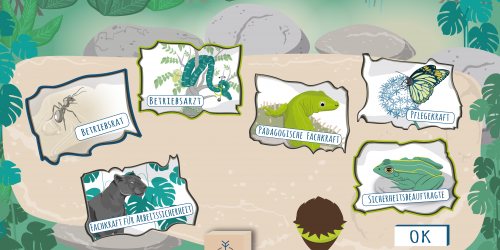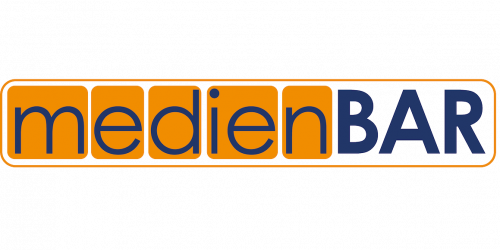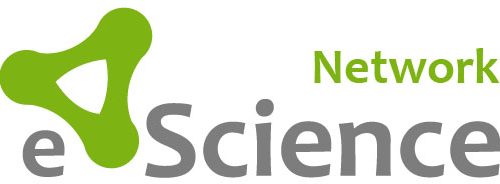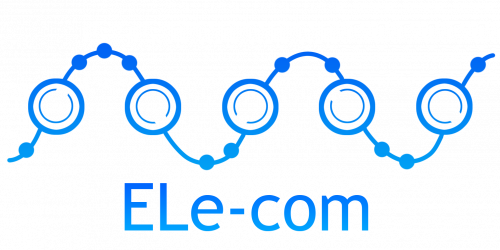The OSM of the TU Dresden: The way to a secure choice of study
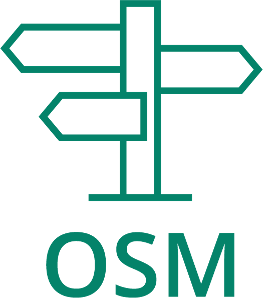 What should I study? Which course of study really suits me? Do I even want to study? The aim of the Orientation Studies (OSM) at TU Dresden With the OSM, interested students have the chance to get a taste of various degree programs at TU Dresden for up to two semesters. They can attend lectures, take part in workshops and excursions, take exams, visit the cafeteria and get to know student life.
What should I study? Which course of study really suits me? Do I even want to study? The aim of the Orientation Studies (OSM) at TU Dresden With the OSM, interested students have the chance to get a taste of various degree programs at TU Dresden for up to two semesters. They can attend lectures, take part in workshops and excursions, take exams, visit the cafeteria and get to know student life.
During the OSM, you will deal intensively with your own ideas, abilities and goals so that you can ultimately make an informed and motivated decision for your own future. The orientation program can be used before the regular degree programs at TU Dresden. A comprehensive range of events helps interested parties to find the right degree program and to start their subsequent studies optimally prepared. With the OSM, interested parties have one or two semesters to get to know the MINT degree programs at TU Dresden and find the right subject. Successfully completed exams can be credited towards a later degree program upon request. In addition, there is the opportunity to get to know student life with all its advantages: the semester ticket, the offers from the university sports center, the student university groups and much more. During the OSM, participants are advised and supported with the help of a mentoring and coaching program.
The OSM is intended to enable high school graduates and other prospective students to make an informed decision about which course of study to choose and thus to successfully start studying at TUD. With the aim of further developing the orientation course and better tailoring it to the needs of these future participants, a survey was commissioned in 2022. Over 2,000 prospective students, students and employees inside and outside TU Dresden took part in the survey.
2043 people completed the survey. Among them were 129 pupils (6.3 percent), 1230 students (60.2 percent), 602 employees of the TU Dresden (29.5 percent), 41 employees outside the TU Dresden (2 percent), 25 times miscellaneous (1.2 percent) and 16 times no answer (0.8 percent).
The question of whether students (n = 87) feel well informed about their options after graduation revealed a divided picture. Around 47 percent said the answer partly-partly, 25 percent good to very good and around 27 percent bad to very bad.
Over 64 percent of students (n = 87) want to start studying after graduating from school, almost 61 percent (n = 56) in the STEM field, while around 21 percent were not yet sure about their decision.
Almost 60 percent of students (n = 87) say they have concerns about planning their future after graduation, particularly due to the following points (mentions with over 50 percent agreement):
- The difficulty of estimating which qualifications and skills will be important (77 percent).
- The lack of clarity about one’s own suitability/abilities (73 percent).
- Unsatisfactory preparation for university studies at school (64 percent).
- The difficulty of obtaining helpful information (63 percent).
- The number of possibilities is difficult to keep track of (54 percent).
- The lack of clarity about one’s own interests (52 percent).
The need (n = 1927) for an OSM at the TU Dresden is predominantly assessed as high or very high (62.8 percent). Only 6.2 percent estimate the need as low or very low. There were no relevant differences in the assessment between the status groups.
Only about 7 percent of students (n = 96) cannot imagine taking part in the OSM themselves, while 92.7 percent say the opposite. 62.5 percent of students said yes to the desire to take part in the OSM, and another 30.2 percent said yes if the offer were also available for other subject areas. Even among current students, around 74 percent agree.
There are hardly any differences between the status groups in terms of how helpful the individual modules are perceived to be. Over 75 percent find the module study orientation as very helpful or extremely helpful, around 70 percent of the module Qualification in Natural and Engineering Sciences, around 69 percent of the module key competencies/career exploration and around 54 percent the module project work.
Approximately 88 percent agree or tend to agree with the statement that the OSM could be helpful in deciding whether or not to study (n = 1533). Around 89 percent think it is a useful offer. The test run is currently being evaluated.
Overall, the survey shows that the orientation course at TU Dresden is met with broad approval and interest. The OSM gives prospective students a valuable opportunity to find out more about their study options and to start the future well prepared. The high level of approval from respondents speaks for the relevance of this program. TU Dresden will continue to work on adapting the OSM to the needs of future participants and ensuring that it remains a valuable resource for choosing a course of study.
Authors: Matthias Heinz, Robin Heintz

